Saudi Arabia‘s influence on the rise of Islamic extremism in Indonesia
Indonesia has long been seen as a model country where Islam coexists with civil law. But Saudi Arabia’s influence on the country’s schools is raising alarm bells.
World
Don't miss out on the headlines from World. Followed categories will be added to My News.
Saudi-funded schools in Indonesia have produced a diabolical intellectual cabal behind some of the nations most murderous terrorist groups.
Saudi-funded schools in Indonesia have produced a diabolical intellectual cabal behind some of the nations most murderous terrorist groups.
The Institute of Islamic and Arabic Studies (LIPIA) is financed by the dessert Kingdom and linked to the Imana Muhammad Ibn Saud Islamic University in Riyadh.
Alumni include the ideologue Aman Abdurrahman who was behind the 2016 Jakarta bombing that killed seven people, and Jafar Umar Thalib, a founder of the militant and radical Islamic anti-Christian organisation Laskar Jihad.
In 20 years Saudi Arabia has splashed more than $US200 billion into the struggling economies of Muslim majority nations worldwide — with the largest slice of the oil-funded pie reserved for Indonesia — our nearest Asian neighbour.
More Muslims live in Indonesia than anywhere else in the world.
Saudi-funded schools have not only produced Western-hating terrorists but several law makers including former house of representatives deputy speaker and Prosperous Justice Party leader Anis Matta, Islamic Defenders Front leader Rizieq Syihab and Liberal Islam Network co-ordinator Ulil Abshar Abdalla, as well as the former governor of West Java Ahmad Heryawan.
LIPIA’s modus operandi is to develop promising students from across Indonesia and use Saudi universities as finishing schools.
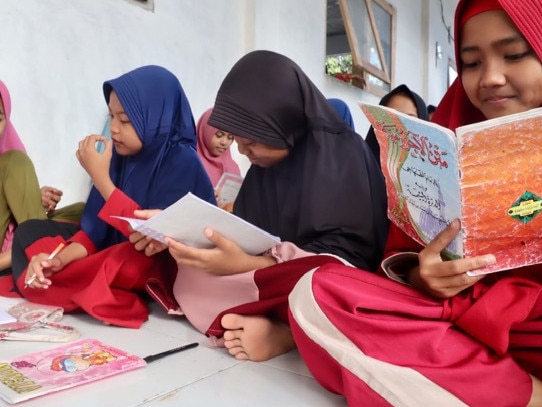
International expert on global Islam Professor Susanne Schröter, director of German research institute Global Islam, told News Corp that the takeover of education should be taken seriously.
“Wahhabiism is an ideology that has produced violence in many countries in form of jihadism. For Indonesia Laskar Jihad which had been dissolved in 2002 and Jemmah Islamiyah should be mentioned or new groups like Jemmah Ansharut Daulah. Professor Schröter said.
According to the academic, Saudi Arabia’s influence is based on financial and ideological transfer to Indonesia as well as on scholarships for Saudi universities.
“The Saudi state finances boarding schools, institutes of higher education and universities such as the Institute for the Study of Islam and Arabic, mosques and cultural centres. As a result, they are gaining more and more influence. The awarding of scholarships should also not be underestimated. Indonesian graduates from Saudi universities who believed that they had come to know the ‘true Islam in Saudi Arabia initiated the fundamentalist turn of the 1980s and 1990s,” Professor Schröter warned.
The cashed up Kingdom is pouring billions of dollars into Indonesian schools, religious and social programs with a cultural coating — or ‘Arabisation’ as it is known locally — of harsh Wahabism.
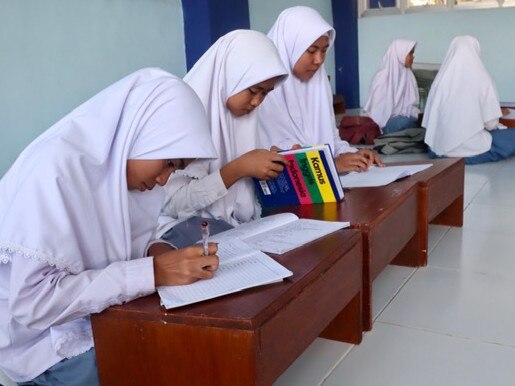
Last year the King Salman Humanitarian Aid and Relief Centre visited the Saudi Embassy in Jakarta.
It was reported that the organisation spent $US435 million on 28 programs.
“It has always been their (Saudi Arabia’s) goal to change the legal system and adapt it to sharia law. The first laboratory was the Aceh province, which has meanwhile Islamised all laws,” Professor Schröter said.
This year sheik Dr. Abdurrahman Bin Muhammad Amin Bin Qosim Thalib, founder and director of several ‘waqf’ — or philanthropic institutions from Mecca and Medina arrived with an extensive team of teachers, scholars and activists to install into classrooms and lecture halls.
The Sharia-law Islamic province of Aceh — on the northern tip of Indonesia — has long been nurtured by the petro-dollar.
Since 2006 the Organisasi Konferensi Islam (OKI) has delivered more than 13,000 scholarships to Acehenese orphans with more than 5000 receiving scholastic assistance every month.
OKI now takes hundreds of Aceh orphans to the annual Hajj pilgrimage to the desert kingdom as a cultural ‘pilot’ program.
A visit by Saudi’s King Salman bin Abdl Aziz to Jakarta in 2017, saw him bestow $US13 billion on business, education and religion in Indonesia.
During that trip, King Salman and his entourage of 620 people plus 800 delegates, 10 ministers and 25 princes required 27 flights to get them to Java — including the transport of two favourite Mercedes-Benz S600.
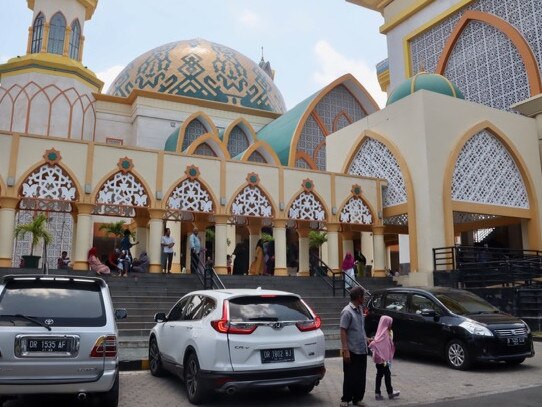
Indonesian’s Makkah Al-Mukaramah Foundation has built more than 850 mosques in the 12-years to 2015 with hundreds more under construction, particularly in earthquake-ravaged Lombok — all mainly Saudi money.
The ‘Island of a Thousand Mosques’ as Lombok is known, is well on the way to matching it’s name after deadly earthquakes razed tens of thousands of homes and displaced more than 140,000 people — many of who still live in tents near the shiny new mosques and madrasah schools.
Earlier this year the Dewan Mesjid Indonesia announced that Saudi Arabia would fund the reconstruction of 195 tsunami-damaged mosques in Palu and Donggala.
The internationally-acclaimed academic Dr Paul Marshall from Baylor University in Texas said Saudi Arabia plays a major role in the growth of radical Islamism in Indonesia.
In his seminal analysis ‘Saudi Influence in Islamic Radicalism in Indonesia’ Dr Marshall found that the Kingdom was on an established path of replacing the tolerant form of Indonesia Islam that is grounded in the notion of ‘Unity in Diversity’ with its severe Wahabism and Salafism.
“A well-funded network of schools, scholarships, imams, and mosques try to replace local interpretations of Islam, which have usually encouraged democracy and peaceful relations between religions, with Saudi Wahabism,” Dr Marshall found.
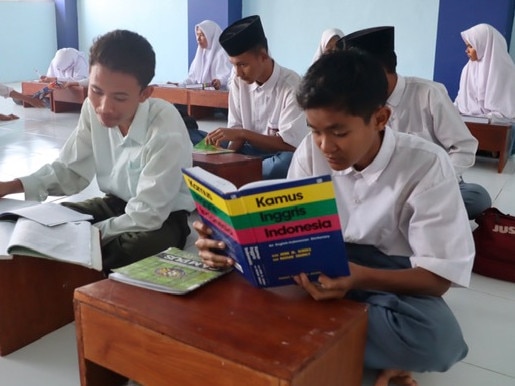
According to the academic, since 1979 Saudi Arabia has provided schoolbooks, brought in its own preachers and teachers and disbursed thousands of scholarships for graduate study in Saudi Arabia.
The Dewan Dakwah Islamiyah Indonesia (the Indonesian Society for the Propagation of Island — or DDII) receives Saudi aid and builds mosques, hospitals, orphanages while giving out Korans, Islamic educational tools and training religious leaders.
According to the Washington DC-based think tank the Middle East Institute the DDII fosters Islamic student organisations and delivers Saudi-backed scholarships to Indonesians.
“The DDII has also sought to network with other Islamic organisations including Muslim Brotherhood groups and even elements of the Jemaah Islamiah,” said MEI’s research paper Saudi Religious Influence in Indonesia by Fred. R. Von der Mehden.
South East Asia’s greatest terrorist threat, which was behind the deadly 2002 Bali Bombing, is Jemaah Islamiah (JI).
Created by the notorious cleric Abu Bakar Baasyir and with links to al-Qaeda and Islamic State (IS), the cell is known for enlisting, training, indoctrinating and financing recruits.
The terrorist organisation operated openly in Indonesia and even had a public facing website until 2014.
It was shut down that year when the group pledged loyalty to IS and proceeded to absorb the would-be Caliphates security and media lines to expand its own base.
Abu Bakar Baasyir is now serving a 15-year sentence in Indonesia for terrorist-related activities.
Four other members of JI are in custody for alleged involvement in training camps in central Java from 2016-19.
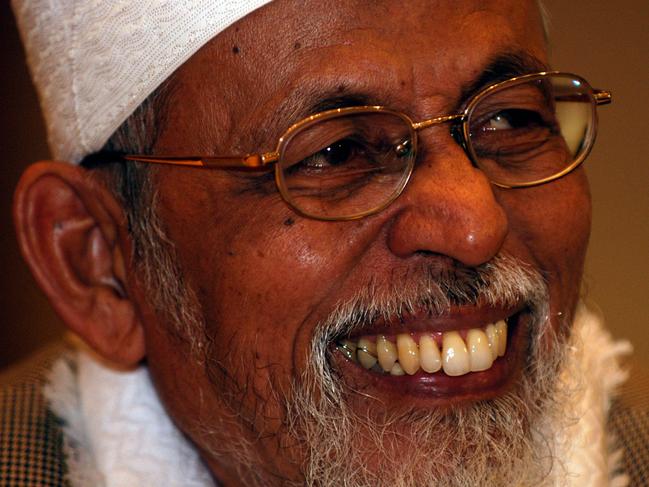
From small children to university students — the future elite are not only learning Wahabism, but teachers inculcate the religious exceptionalism of the Kingdom itself, which is described as a divinely selected world centre of Islamic faith.
In the process, they have created an opportunity for their own political influence by grooming Indonesia’s Muslim elite to be more receptive to Islamic political notions and hardline causes.
Khalid bin Muhammad Al-Deham, a Saudi national, leads LIPIA, which has graduated 11,550 students between 1982-2013.
The number of graduates increases annually with 750 graduated in 2017.
LIPIA encourages male students to grow beards and wear ankle-length linen pants while women are urged to wear a burqa.
The Arabisation of Indonesia was front and centre of world news in 2017 when the Governor of Jakarta Mr Basuki Tjahaja Purnama — who is known as Ahok, was jailed for blasphemy over remarks made about a Koranic verse.
“The semi-official Indonesian Ulema Council issued a fatwa accusing Ahok of blasphemy, and the radical Islamic Defenders Front, which has attacked Muslim minorities, churches and nightclubs, called for demonstrations demanding that he be tried and imprisoned,” Dr Marshall explained.
MORE NEWS
Moment gunman was shot in Paris bloodbath
Hockey blasts Downer ‘spy’ claims on Trump
Liberal MPs call for activists’ dole to be cut
‘Nigerian drug lords’ Aussie visa scandal’
Victorian Premier demands Leifer’s extradition
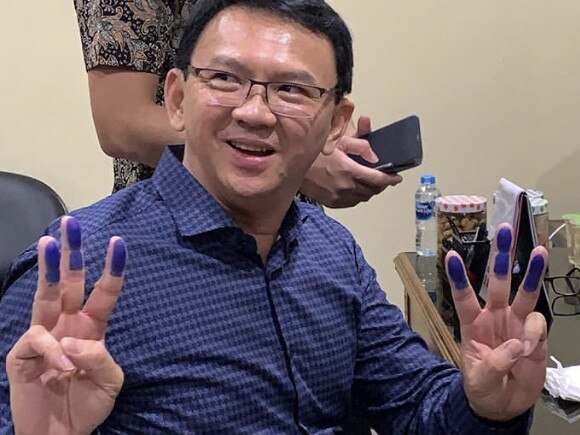
Ahok is an ethnic Chinese and a Christian.
He was arrested and tried for blasphemy.
“The prosecution recommended the very light sentences of probation plus a one-year suspended jail term. However, on May 9, the five judges ignored this recommendation and sentenced Ahok to two years in prison. The following day, three of those judges were promoted by the Indonesian Supreme Court,” Dr Marshall said.
This happened at a time when Muslim groups covered a 30-metre tall brightly coloured statue of a Chinese deity because they considered it unIslamic.
It has since returned to full exposure.
In Jakarta and about 60 other cities, protests took place over proposed ‘Sharia-style’ laws that will go before parliament on October 1.
President Joko Widodo postponed the changes to the Criminal Code last week after public outrage and international shock at laws that would outlaw abortion, consensual sex between adults, living together unwed and a raft of other draconian laws that are more identifiable as ultraconservative Islamic Saudi than Indonesia.
Professor Schröter said the unfolding dramas across the nation shows how divided the country is when it come to Islamic laws.
“One part of the population advocates the introduction of Sharia, another part wants to live in a free modern society. The young people who are protesting against Sharia also criticise the passing of a bill that impedes the detection of corruption. It is too early to speak of a wind of change, but it seems that liberals who had observed the recent transformation of society has now decided to resist.”
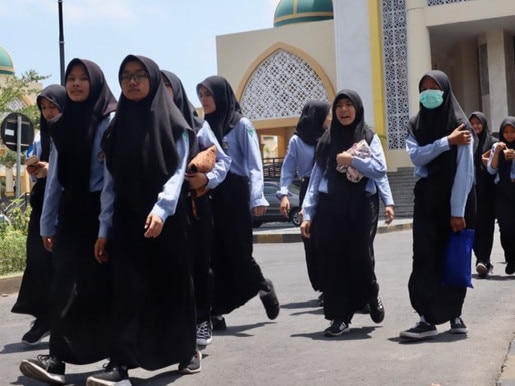
Human Rights Watch researcher Andreas Harsono agrees that the people are making a stand again the creep of Islamism and students are ready to fight.
“State institutions discriminate against minor religions and women. If you considered Wahhabiism — this began in 1969 when the DPII was set up with Saudi funding and brought us directly to this flashpoint,” said Human Rights Watch researcher Andreas Harsono.
He warned that the Indonesian people, and students are ready to fight.
“Jakarta is in riots and burning because the proposed changes to the penal code. It is becoming closer to Islamic Sharia law. The battle is going on with people uprising in Jakarta and 66 cities all over Indonesia,” Mr Harsono said.
“Parliament starts on October 1 and the proposed new penal code will be presented again. The protesters doubt the new parliament will make the changes they demand because the system does not support it.”
The Jesuit maxim: ‘Give me the child for the first seven years and I will give you the man’ appears to have been hijacked by the Arab world in Asia with unsettling success.
